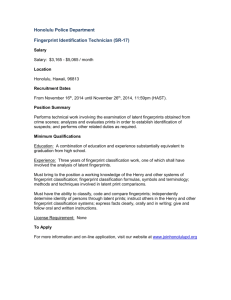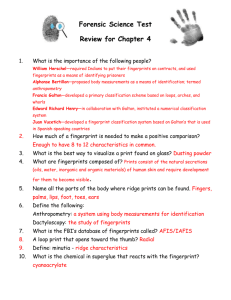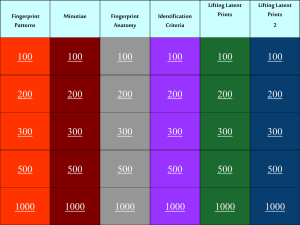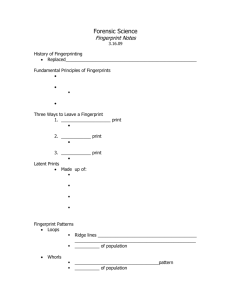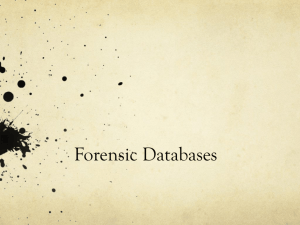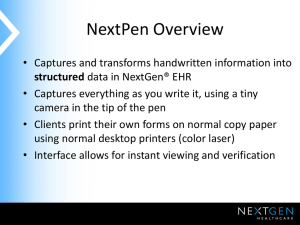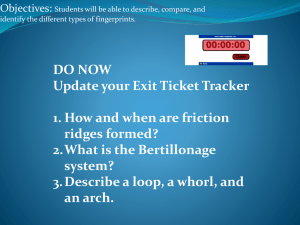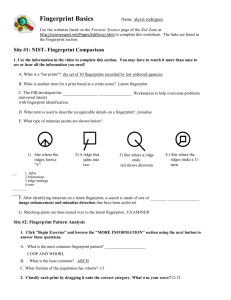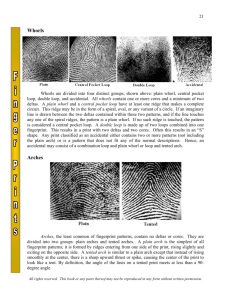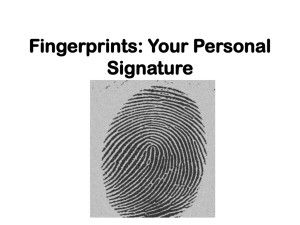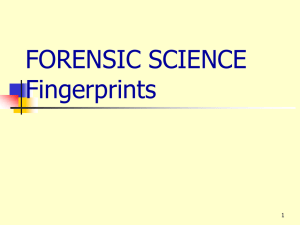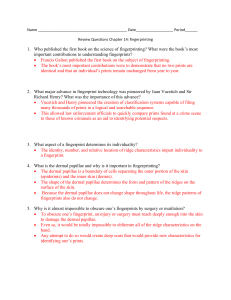Fingerprint - ecrimescenechemistrymiller
advertisement
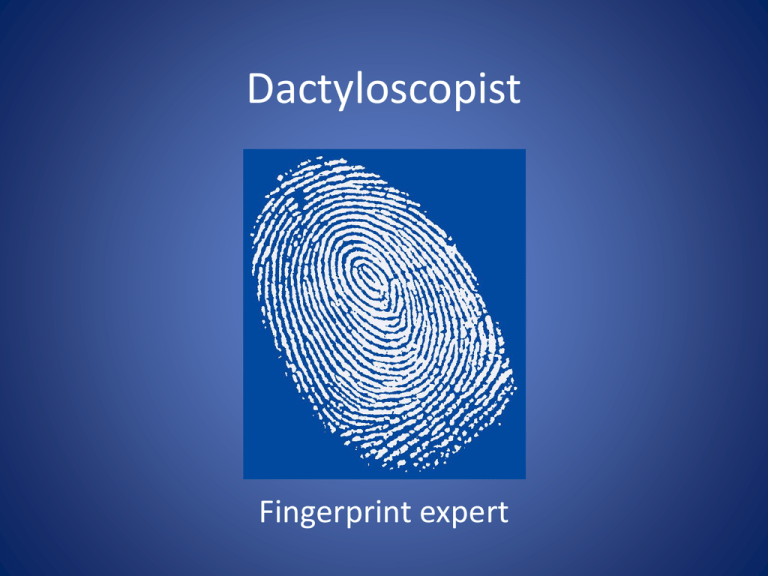
Dactyloscopist Fingerprint expert Evidence • 3 different kinds of fingerprints – Latent Prints – Patent Prints – Plastic Prints Latent Prints • A chance or accidental impression left by skin on a surface • Chemical, Electronic, and physical processing techniques show visualization of the invisible print • Print comes comes from sweat, motor oil, blood, paint, ink… • Very valuable physical evidence Latent Print Patent Prints • Friction ridge impressions of unknown origins • Transfer from a foreign material on a finger onto a surface • Visible • Photographed rather than lifted • Ex: ink, dirt, blood… Patent Prints Plastic Prints • Friction ridge impression from – Finger – Palm – Toe – Foot Keeps the shape of the ridge detail Ex: melted candle wax, thick grease Visible and doesn’t need photography Plastic Prints Fingerprint Capture • The machine mainly determines the difference in the ridges and the valleys • Two kinds of readers – Solid-state fingerprint reader – Optical fingerprint reader Classifying fingerprints • 4 different kinds of fingerprints: – Arch – Loop – Whorl – Tented Arch Arch Loop Whorl Tented Arch Case Study: Conviction Through Enhanced Fingerprint Identification • In 1990 an unknown assailant sexually molested and fatally stabbed a young woman. The only evidence was a pillowcase, found next to the victims body. It had several blood stains, one stain showed some faint fingerprint ridge detail. Investigation • Pillowcase to the departments forensic unit for bloodstain pattern analysis • Stains were consistent with a knife blade • Fingerprint had enough ridge detail to go further into the investigation • Image enhancement developed likely suspects and the the DNA proved the fingerprint match was correct Interview • “What kind of educational background do you have to have in order to work as a fingerprint expert?” • “It depends, there are different levels. There is on the job training and job preparation training; NCIC National Crime Index Certification and International Association of Identification. The person with the least amount of experience has worked here for 7 years.” • “What is a typical day like for you?” • “It depends, I examine fingerprints of individuals that are arrested and process their identification to check their previous arrest history. I also review the work of coworkers to make sure they make proper identifications.” • “Are you a forensic specialist all the time or do you have a "day job"?” • “There are different shifts. There is a late unit and a temperate unit which is 24 hours. There are three 8 hour shifts each day. There is a shift from 4am to 3 pm.” Resources • • • • • • http://images.google.com/imgres?imgurl=http://www.fdle.state.fl.us/CrimeLab/im ages/fingerprint http://www.wilsonnc.org/userimages/image/00000023_image002.jpg http://en.wikipedia.org/wiki/Fingerprint#Patent_prints http://static.howstuffworks.com/gif/safecracking-keypad.jpg http://people.pwf.cam.ac.uk/jw566/research/photex/application/images/finger1.j pg http://www.crimeandclues.com/92dec001.htm
